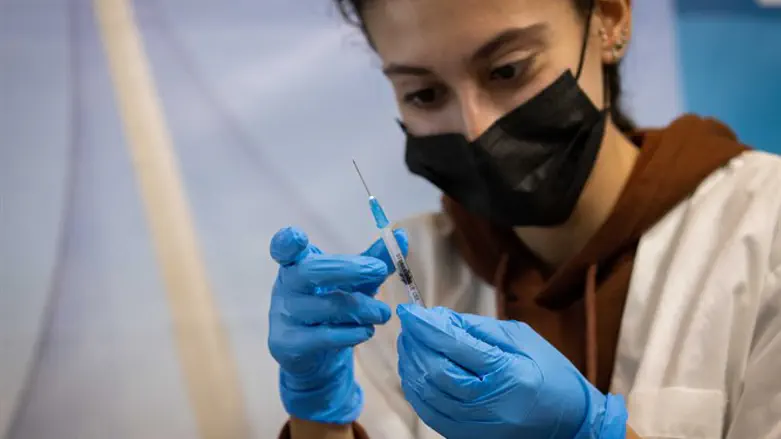
A new study conducted by Sheba Medical Center in which 5000 health workers participated appears to illustrate the importance of receiving a third, or booster shot of the COVID vaccine.
The health workers were tracked with regular serological testing during the past half year after receiving their second vaccine dose, and during that time, a continual drop in their neutralizing antibody levels was observed, which is presumed to significantly affect their level of resistance to the coronavirus.
Another interesting observation that emerged from the study: At first, shortly after the second dose of vaccine, the level of antibodies dropped off sharply, and then, from the third month following vaccination, the rate of decrease became more moderate.
Prof. Gili Regev-Yochai, director of the department of prevention and monitoring of infectious diseases at Sheba Medical Center, led the study.
“We succeeded here in building a model that illustrates the differing levels of antibody in various populations – for instance, men, older people, and those who are immunocompromised. Using the model we constructed, we will in future be able to estimate the likelihood of severe or mild infection among various populations, and also to establish the required form of treatment required in the various cases,” she said.
According to Regev-Yochai, “What people around the world are trying to do right now is identify the critical threshold of antibodies needed to prevent contagion, infection, severe infection, and also mortality. Identifying the various critical levels relevant to different population segments – as we attempted in this study – enables us to estimate the chances of each population segment becoming ill, and therefore to draw conclusions on the necessity of giving a booster shot to that segment, and also to decide which various non-pharmacological measures may be wise, such as requiring quarantine or frequent testing.”
The new study just published confirms the findings of a previous study also conducted in Sheba Medical Center, last month – that, as antibody levels drop, the likelihood of becoming infected rises, and also that the more time passes from the second vaccine dose, the more likely a person is to contract coronavirus. A similar study, conducted by the Health Ministry together with the Gertner Institute, drew the same conclusions, impelling the government to make the decision to promote the booster shot.
“The results of this study are especially useful for countries which have yet to commence a booster shot program,” Regev-Yochai noted, “or for countries where half a year has already passed since they started vaccinating people with the second dose. And here at Sheba we have already started on the next phase of the study, tracking antibody levels following the booster shot. Our findings are likely to be of prime importance in determining future government policy regarding vaccination.”
